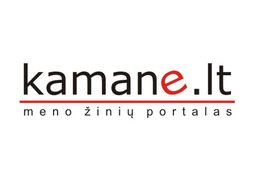PLEASURES OF LITERATURE FORUM “NORDIC SUMMER 2009: YES AND NO 0
AKLAS Žirklionis
www.kamane.lt, 2009 09 04
R.Drazdauskienė, organiser of the forum “Nordic Summer”. From balsas.lt
In brief: The international literature forum “Nordic Summer” took place in Vilnius and Jurbarkas for the eighth time on the 20th-23rd of August. The theme of the forum of this year was “Literature without Quotation Marks: In Search of Lost Quality”. Writers, critics, scientists and philosophers from Lithuania, Estonia, Denmark, Sweden, Finland and Norway took part in seminars and evening readings of the forum.
This year the forum invited men of letters for the great pleasure of masterly created text. The alternative literature movement (AKLAS) Žirklionis existing under the wing of kamane.lt decided to experience these pleasures too. Therefore, impressions about “Nordic Summer” are shared by Mindaugas Grigaitis, Dovilė Paškevičiūtė and Urtė Sakalytė in the article. Extracts from abundant impressions are presented in English.
Mindaugas: The annually organised international literature forum “Nordic Summer” is most probably targeted at text maniacs who want to experience and share text pleasures even during summer holidays. Perhaps we are desperate fanatics of literature as we were easily tempted by the intriguing invitation of the forum to experience “the great pleasure of masterly created text”. We all know that it is easy to get addicted to pleasures. Thus, we were caught in a trap. Now we have to satisfy the instinct of critical thinking and to tell what pleasures and disappointments we experienced in one of the most serious literature events of the year.
Urtė: When I dropped to the opening evening of the forum in Havana Social Club in Vilnius, I could not wipe the ironic smile from my face. The introductory speeches of Giedra Radvilavičiūtė and Jūratė Baranova made me evaluate every coming sentence sceptically. I could not start admiring the flows of intricate words and high phrases. Only the atmosphere created by literature readings and music let me enjoy the evening. Afterwards, I left for Jurbarkas full of tranquillity knowing that there would be some pleasure of masterly created text for sure. Still, the feeling that some disappointments awaited did not leave me.
Dovilė: I enjoyed literature readings in Jurbarkas, even though not all texts caught my attention. The forum was started by the text read by Danutė Kalinauskaitė. It was not too intricate and no special efforts were needed to understand it. The news that Donaldas Kajokas and Arvydas Šliogeris did not arrive at the forum disappointed. The accent of the first evening was the “Free Microphone”, which was occupied by the youthful Kęstutis Navakas and later Antanas Jonynas. Snappy readings and conversations in the open air were free and gladdened the participants.
Mindaugas: I found the report of Solveiga Daugirdaitė “Attempt to Imagine Why we are Interesting” catching. The reporter told playfully how she compiled the anthology of Lithuanian prose for Latvian readers and at the same time evaluated the untouchable Lithuanian classics critically.
Giedrė Šmitienė, who was speaking how the question of good literature was refused by Merleau-Ponty, made a very similar conclusion to S. Daugirdaitė. She stated that there were no unchanging literature evaluation criteria. In fact, the criteria of art evaluation depend on the particular cultural and historical situation.
Meanwhile, the interpretation of the Danish D.Heede of H.Ch.Andersen’s “Little Mermaid” looked like a game of deconstruction. I think that this reporter was not understood properly. Still, I enjoyed the very attempt of the Dane to speak about the well-known work from the perspective, which was barely known to us.
Dovilė: Anyway, no matter how strange and in a way interesting the interpretation of “Little Mermaid” was, the statement of Gabrielė Gailiūtė that our literature was very poor and of low quality sounded even less understandable. It is rather bold to assert such a radical thought directly to the elite of Lithuanian literature. Courage is not enough; one needs to ground the statement. Meanwhile, G.Gailiūtė did not present any. She is a translator, and one of the reasons why she made such a courageous statement could be that she did not have enough time to read texts of Lithuanian authors most probably.









